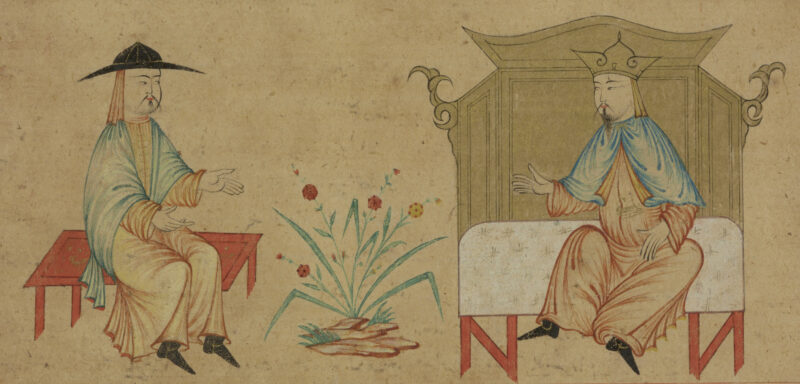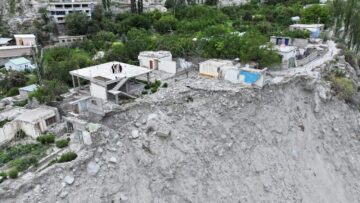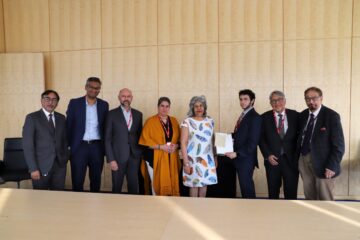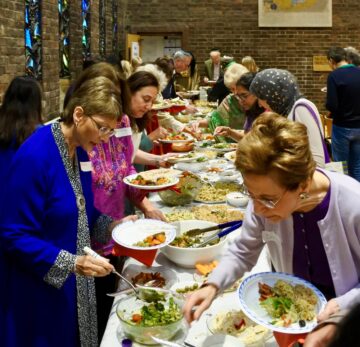Fatimid Cosmopolitanism: History, Material Culture, Politics, and Religion will run online on 6-9 December 2021. Here Russell Harris, editor in the IIS’s Department of Academic Research and Publications, gives an insight into what attendees can expect.
We have to thank the FatimidsMajor Muslim dynasty of Ismaili caliphs in North Africa (from 909) and later in Egypt (973–1171) More! Not only did they rule over an empire that stretched across Ifrīqiya and beyond from 909–1171 CE, but they also provided the Islamic world with some of the most heroic, colourful and pluralistic leaders (the Imam-Caliphs). They left behind great military and religious monuments (the mosques of al-AzharA major mosque and institution of learning founded in Cairo by the Fatimid Imam-caliph al-Muʿizz (d. 975)., al-Ḥākim, al-Aqmar in Cairo, among others) and were the patrons and inspiration for great works of literary production. Archaeology has unearthed masterpieces of ceramics, ṭirāz, and decorative ivory work that once decorated the great palaces of these Imam-Caliphs in Cairo.
With Dr Gregory Bilotto as the convenor, the IIS is organising an online conference entitled Fatimid Cosmopolitanism: History, Material Culture, Politics, and Religion. The selection of speakers is of world renown and the spread of papers (for which I have received and edited the abstracts) is gripping. As Dr Bilotto has written in the foreword to the conference programme, the Fatimids “contributed to the formation of a cosmopolitan, or culturally rich, environment that stimulated intercultural contact and exchange between the entire Fatimid state and contemporary cultures across the Mediterranean, the Middle East, and the Indian Ocean”.
As one of the world’s leading research centres on the history of the Ismaili Fatimids, the IIS will be represented by our own experts, including:
- Our co-director, Dr Farhad Daftary (on the contribution of the Russian scholar Wladimir Ivanow);
- Dr Maria de Cillis (al-Kirmānī’s contribution to intellectual cosmopolitanism);
- Dr Shainool Jiwa (the historiography of al-Ḥākim bi-Amr Allāh);
- Dr Hasan al-Khoee (the work of al-Qāḍī al-Nuʿmān);
- Dr Daryoush Mohammad Poor (Fatimid Political and Ethical Sensibilities);
- Professor Stéphane Pradines (excavating Fatimid Cairo);
- Dr Omar Alí-de-Unzaga (al-Muʾayyad fi’l-Dīn Shīrāzī’s position on metaphor in the Qur’an(also Koran. Arabic term meaning, ‘recitation’ or ‘scripture’): Muslims believe that the Holy Qur’an contains divine revelations to the Prophet Muhammed received in Mecca and Medina over a period of… More).
The list of visiting scholars is also exciting, and includes:
- Dr Daniel Beben (Nāṣir-i Khusraw and the late Fatimid daʿwaLit. ‘summons’, ‘mission’ or invitation to Islam. Amongst Shi’i Muslims, it was the invitation to adopt the cause of the Imamat. It also refers more specifically to the hierarchy of…);
- Professor Doris Behrens-Abouseif (late antiquity in Fatimid art);
- Professor Anna Contadini (the casket of Ṣadaq ibn Yūsuf);
- Dr Valérie Gonzalez (science and aesthetics at the Fatimid court);
- Professor Bernard O’Kane (astral symbolism and Solomonic imagery in Fatimid art);
- Professor Ayman Fuad Sayyid (Fatimid Celebrations);
- Dr Fahmida Suleman (Central Asian and Chinese inspirations in Fatimid art);
- Professor Shafique Virani (a shared symbol in Christianity and Islam);
- Professor Paul E Walker (Fatimid Chancery).
Personally, I have to say that the list of speakers and the papers they plan to deliver make this one of the most thrilling conference programmes I have seen, and the planned publication of select papers from the conference proceedings will be a vital addition to the corpus of studies on this most exciting and intriguing of historical eras.
Aiming to cover a huge span of subjects, the conference is broken into sessions on topics including:
- The Fatimid State and Statecraft;
- Fatimid Globalism;
- The Fatimid daʿwa and dāʿīs;
- Fatimid Decorative Arts and Archeology;
- Fatimid Architecture and the Ceremonial;
- The Fatimid Legacy.
The papers will be delivered by our invited academics in 20-minute slots, and with opportunities for questions from the audience, the conference promises to be a wonderful opportunity for us to hear about the very latest research on a period that is central to the history and heritage of the Ismaili communities, and the Muslim world at large.
Russell Harris, editor, DARP







